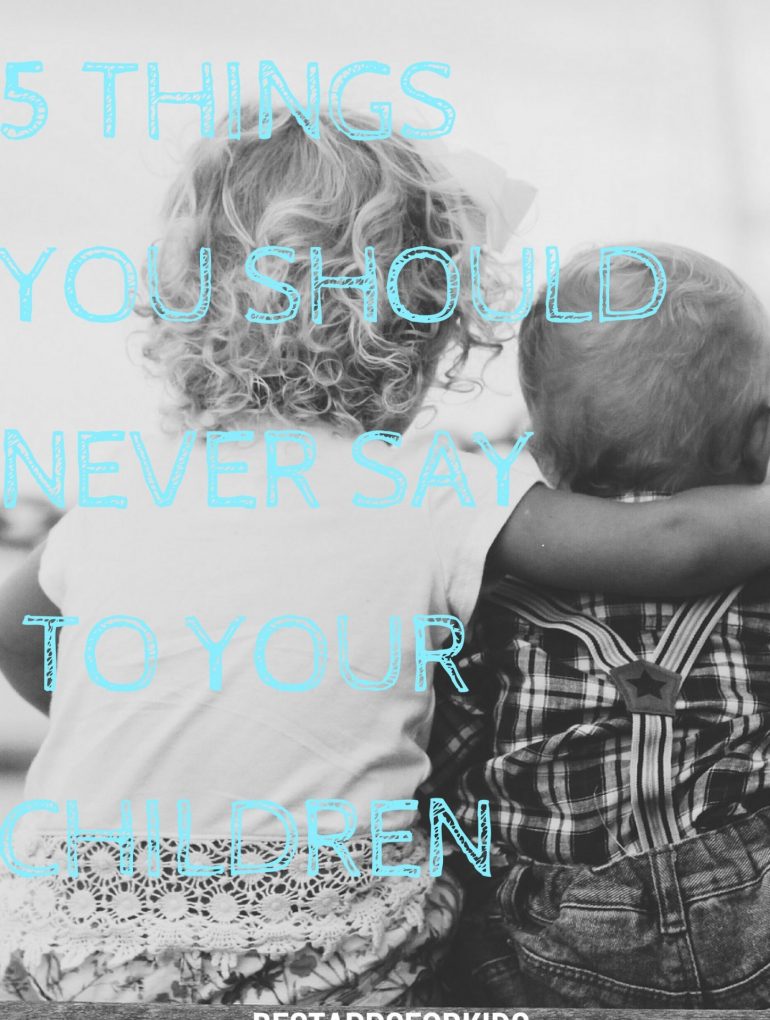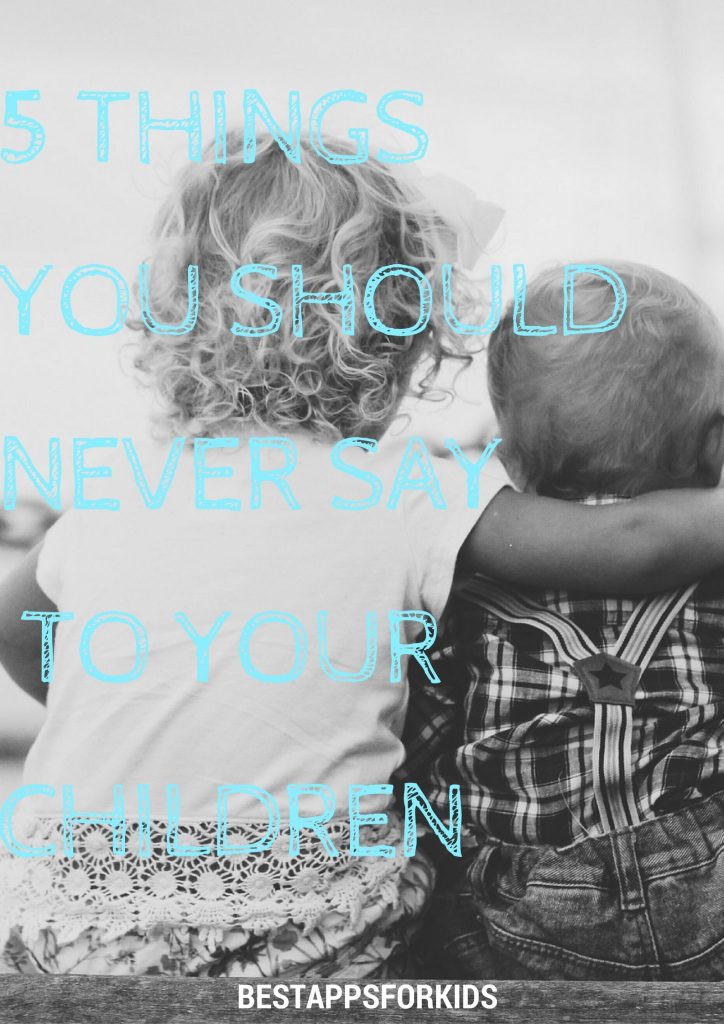Every parent has less-than-stellar moments, and that’s okay–you are human, after all! However, there’s still some phrases you should never, ever say to your children. Ever. Check out the following and if you’ve already said them, apologize to your younglings and make a point of avoiding such language in the future:
“What’s Wrong With You?”
Asking this question signals to your child that there’s something wrong with him or her personally instead of something amiss in the situation. Ask “What’s wrong?” or “What’s happened?” instead to help your child explain what’s going on. This will very likely prompt thorough explanations instead of recoil.
“Great Job”
This may seem like something you want to say to your little ‘uns, however research indicates it actually teaches them to become dependent on your praise. This doesn’t mean you shouldn’t tell children they did well, it just means changing the language. For example, say “I thought that catch in the outfield was really nice. You made sure to call off the other players like you should.”
“Don’t Bother Me”
“Don’t bother me” and similar phrases such as “I’m busy” and “Leave me alone” tell your children there’s no point in talking to you and that you’re not really interested in what they’re doing. If you make such remarks routinely, don’t be surprised if you find yourself dealing with a uncommunicative tween or teen. Taking time for yourself is important, but not at the expense of your children. Say things such as “I need to finish sorting this drawer, but as soon as I am, we can play a game or go to the local park.”
“You’re So…”
Labeling your kids is a huge faux pas. “Why are you so clumsy?”, “You’re so shy around other adults”, “You’re always mean to your sister” and similar phrases do untold damage to kids, especially little ones who believe everything you say with absolute certainty. You’re teaching your children that they’re lazy or stupid when you use hurtful language, something that they’ll take with them into adulthood. Rather than injuring your children’s self-esteem, address behavior and situations. For example, say “Your sister’s feelings were really hurt when you wouldn’t let her play Barbies with you. What can we do to help her feel better?”
These are just some of the things you should never say to children. Do your research, talk to experienced professionals, and otherwise make certain you’re raising happy, confident kids.



